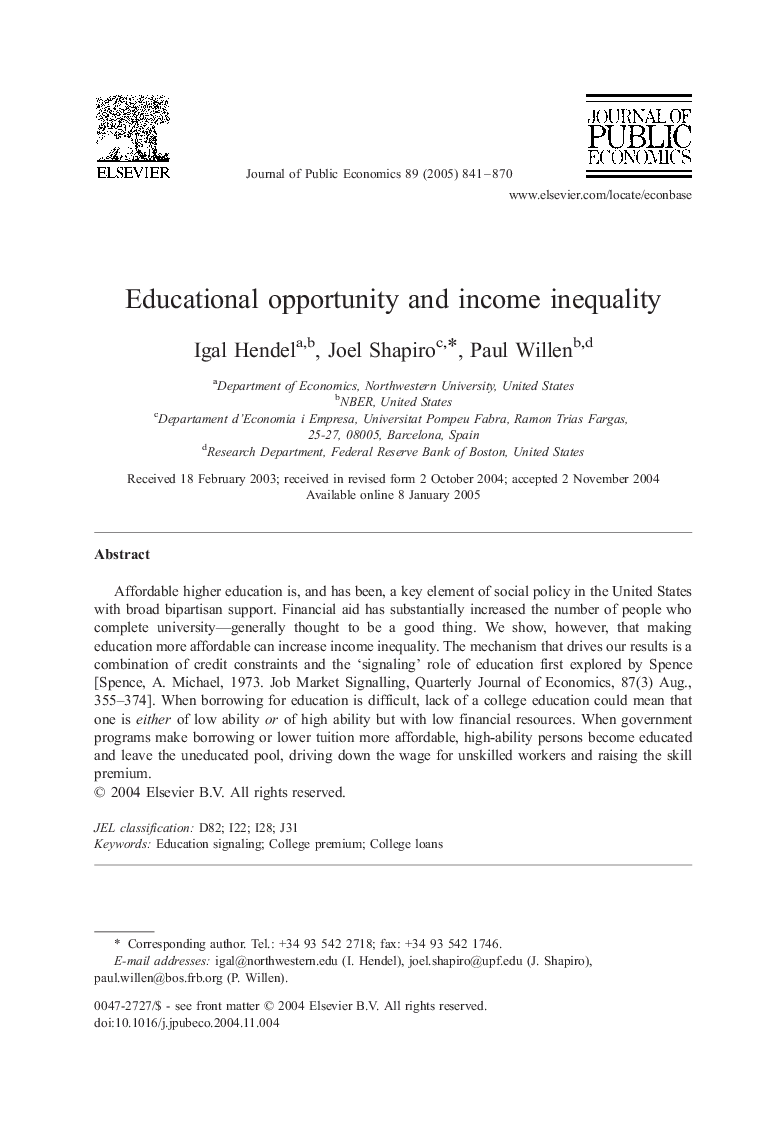| Article ID | Journal | Published Year | Pages | File Type |
|---|---|---|---|---|
| 9726855 | Journal of Public Economics | 2005 | 30 Pages |
Abstract
Affordable higher education is, and has been, a key element of social policy in the United States with broad bipartisan support. Financial aid has substantially increased the number of people who complete university-generally thought to be a good thing. We show, however, that making education more affordable can increase income inequality. The mechanism that drives our results is a combination of credit constraints and the 'signaling' role of education first explored by Spence [Spence, A. Michael, 1973. Job Market Signalling, Quarterly Journal of Economics, 87(3) Aug., 355-374]. When borrowing for education is difficult, lack of a college education could mean that one is either of low ability or of high ability but with low financial resources. When government programs make borrowing or lower tuition more affordable, high-ability persons become educated and leave the uneducated pool, driving down the wage for unskilled workers and raising the skill premium.
Keywords
Related Topics
Social Sciences and Humanities
Economics, Econometrics and Finance
Economics and Econometrics
Authors
Igal Hendel, Joel Shapiro, Paul Willen,
